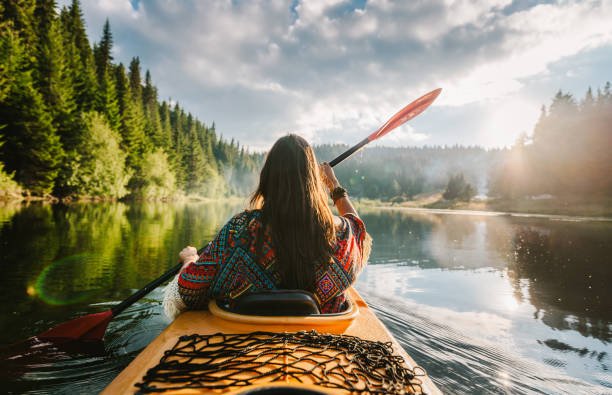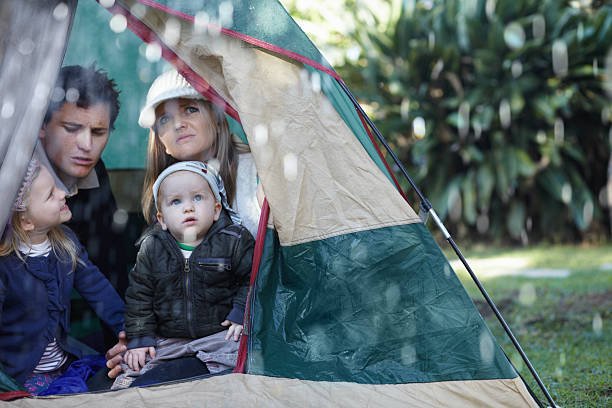Contents
- 1 Backcountry Camping for Beginners
- 2 Conclusion
- 3 FAQs
- 3.0.1 Is backcountry camping suitable for beginners?
- 3.0.2 What are some essential tips for safe backcountry camping?
- 3.0.3 What are the potential risks of backcountry camping, and how can they be mitigated?
- 3.0.4 What essential gear should I bring for wilderness camping?
- 3.0.5 How can I stay safe while camping in remote areas?
Backcountry Camping for Beginners
Backcountry camping is an exciting way to connect with nature away from busy campgrounds. However, it demands thorough planning and readiness, especially for novices. Venturing into the wilderness requires understanding and mitigating potential risks. From choosing the right gear to navigating unfamiliar terrain, preparation is key. Beginners must equip themselves with essential knowledge and skills to ensure a safe and enjoyable experience. By embracing the challenge with caution and foresight, backcountry camping can become a rewarding adventure.

1. Is Backcountry Camping Safe for Beginners?
Backcountry camping can be safe for beginners with proper preparation, knowledge, and awareness of potential risks. Understanding how to mitigate these risks is essential
- Proper Preparation: Beginners should thoroughly research their destination, pack appropriate gear, and plan their itinerary.
- Knowledge of Risks: Understanding potential hazards such as wildlife encounters, weather changes, and navigation errors is crucial.
- Skills Acquisition: Learning basic camping skills like setting up a tent, starting a fire, and reading maps enhances safety.
- Start Small: Begin with shorter trips to familiarize oneself with camping equipment and outdoor survival techniques.
- Group Camping: Joining experienced campers or going with a group can provide support and guidance for beginners.
2. Tips for Safe Backcountry Camping
- Research the area thoroughly before embarking on your trip.
- Inform someone of your itinerary and expected return date.
- Pack lightweight, nutritious food and enough water for your journey.
- Familiarize yourself with basic wilderness first aid.
- Respect wildlife and follow Leave No Trace principles.
3. Backcountry Camping Risks and Precautions
Backcountry camping presents various risks, including encounters with wildlife, adverse weather conditions, and getting lost. To mitigate these risks, take precautions such as

- Terrain Hazards: Watch out for uneven ground and rocky areas to prevent falls.
- Weather Exposure: Check forecasts and pack appropriate clothing for changing conditions.
- Wildlife Encounters: Secure food, make noise, and learn wildlife safety.
- Navigation Errors: Use maps, compass, and GPS to avoid getting lost.
- Water Contamination: Filter water to avoid waterborne illnesses.
- Injuries and Medical Emergencies: Carry a first aid kit and know basic first aid.
- Equipment Failure: Maintain gear regularly to prevent malfunctions.
- Campfire Safety: Follow regulations and extinguish fires properly.
- Solo Camping Risks: Inform others of your plans and carry emergency communication devices.
4. Essential Gear for Wilderness Camping
- Shelter: Chair, Table, Tent or hammock with appropriate insulation.
- Sleeping gear: Sleeping bag rated for the expected temperatures and sleeping pad for insulation.
- Navigation: Map, compass, and GPS device.
- Food and water: Lightweight, high-energy snacks and a reliable water filtration system.
- Clothing: Layered clothing suitable for changing weather conditions.
- Safety equipment: First aid kit, multi-tool, and emergency whistle.

5. How to Stay Safe While Camping in Remote Areas
- Keep a clean camp to minimize the risk of attracting wildlife.
- Set up camp before sunset to avoid navigating unfamiliar terrain in the dark.
- Stay aware of your surroundings and trust your instincts if something feels unsafe.
- Follow proper campfire safety protocols and extinguish fires completely before leaving.
- Choose a campsite away from hazards such as dead trees and potential flooding areas.
- Carry a reliable communication device such as a satellite phone or a Personal Locator Beacon (PLB) for emergencies. Ensure you have a clear understanding of how to use these devices and test them before your trip.
- Prepare a well-stocked emergency kit containing essential supplies such as first aid items, emergency shelter, fire-starting materials, and signaling devices. Be prepared to handle common backcountry emergencies such as injuries, inclement weather, or getting lost.
Conclusion
Backcountry camping can be a rewarding experience for beginners, providing an opportunity to disconnect from the hustle and bustle of everyday life and reconnect with nature. By following these tips and being adequately prepared, you can enjoy a safe and memorable adventure in the wilderness.
FAQs
Is backcountry camping suitable for beginners?
What are some essential tips for safe backcountry camping?
What are the potential risks of backcountry camping, and how can they be mitigated?
What essential gear should I bring for wilderness camping?
How can I stay safe while camping in remote areas?


